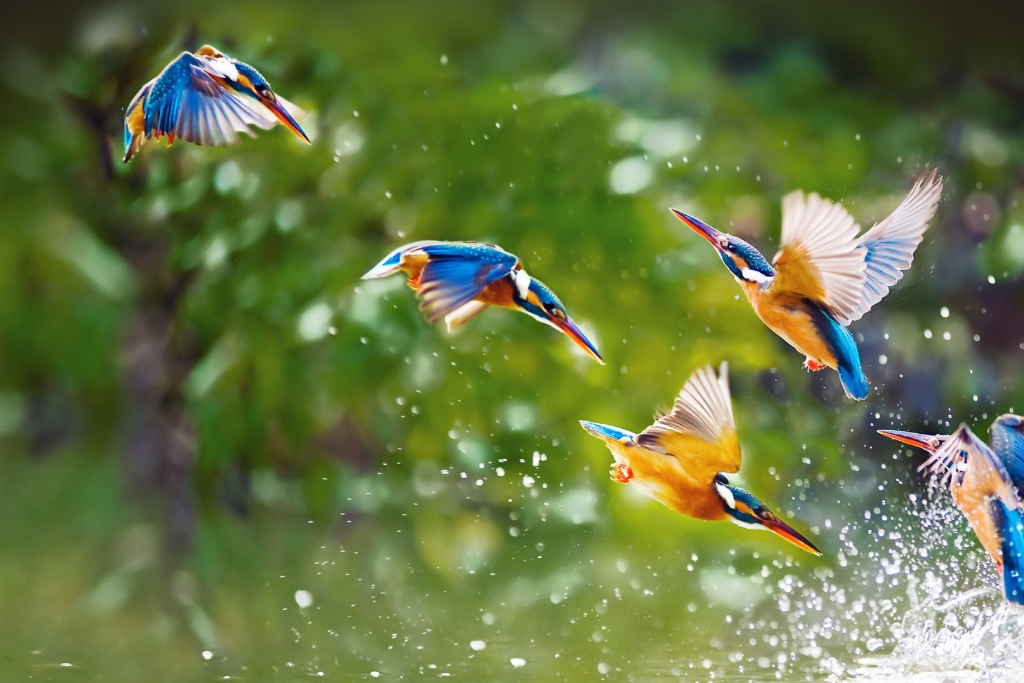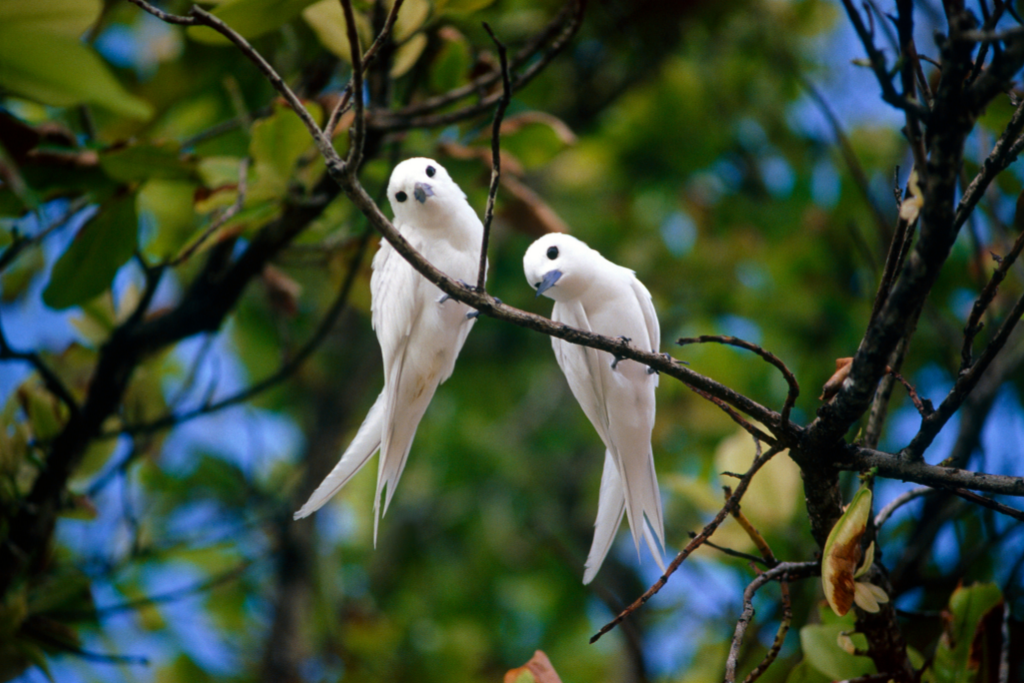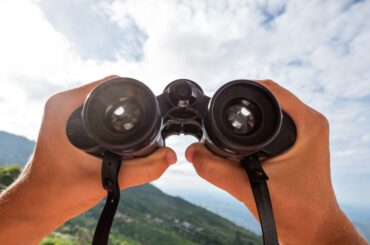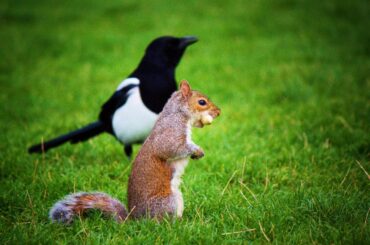Ever wondered why birds are such early risers? What secrets lie in their morning routines? Let’s uncover the mysteries of avian wake-up calls!
Birds have fascinating morning habits. Unlike humans, they wake up with the first light of dawn. Understanding their wake-up times helps us appreciate their unique behavior and adapt to their natural rhythms. It’s like peeking into their private world!
In this article, we’ll dive into the intriguing world of avian morning routines. We’ll learn why birds wake up early and how their habits differ from ours.
We’ll also discover the importance of respecting their natural schedules and how it impacts their survival. So, prepare to embark on a feathered adventure and explore the avian alarm clocks!
The Natural Alarm Clocks

Birds have built-in alarm clocks, finely tuned to nature’s cues. Here are three key factors that influence when our feathered friends rise and shine:
Sunrise Signals
Birds are early risers because they’re susceptible to the changing light. As the sun starts to paint the sky, it sends a signal to their internal clocks, telling them it’s time to wake up.
Temperature Triggers
Cooler mornings provide optimal conditions for birds to forage for food. They’re more active when it’s not too hot, making the early hours their prime time.
Dawn Chorus Communion
Birds are social creatures, and the early hours offer a great opportunity for them to communicate with their fellow feathered friends. The dawn chorus, where birds sing harmoniously, is like a morning greeting among them. It’s a natural alarm that says, “Wake up; it’s a new day!”
Seasonal Variations

Birds are like nature’s clock-watchers, adjusting their wake-up times with the changing seasons. In spring, when days grow longer and warmer, birds rise early to make the most of the extended daylight. They’re on the move, building nests and finding food as the world around them bursts into life.
As summer takes hold, birds become the earliest risers. Some start their day well before sunrise to avoid the scorching midday sun. It’s their way of staying active and cool during the heat of summer.
Come autumn, as leaves turn golden and temperatures drop, birds may hit the snooze button. They wait for the chill to lift before venturing out. In winter, when days are shorter and colder, birds stay tucked in their nests, waiting for the sun to warm the world before starting their day.
Migration is another big player. Birds on long journeys wake up early, stocking up on food for their travels. Those arriving in a new place might sleep in, ensuring they’re well-rested before exploring their new surroundings.
Bird Species and Wake-Up Times

Birds come in all shapes and sizes, and so do their wake-up habits! Some are early birds, while others prefer a bit of a lie-in.
Early Risers
- Robins: These cheerful songbirds are known for being among the first to greet the day. You’ll often hear their sweet melodies at the crack of dawn.
- Larks: True to their name, larks are famous for their early starts. They fill the morning air with beautiful songs, welcoming the sunrise.
Morning Sleepers
- Owls: Birds of the night, these hunters are known as nocturnal creatures. They have a preference for staying awake during the late hours and tend to sleep in until later in the morning.
- Pigeons: Pigeons are more relaxed about their mornings than the early-rising robins. They’ll usually start their day a bit later, enjoying a leisurely morning.
Behavioral Reasons

Birds’ wake-up times aren’t just random; they’re tied to crucial behaviors that help them thrive.
Feeding Habits and Foraging
Birds rise early to hunt for insects and gather seeds when these critters are most active. This ensures they have enough energy to get through the day.
Predator Avoidance Strategies
Mornings are a safer time for birds. Predators tend to be less active during these hours, reducing the risk of becoming a tasty snack.
Social Interactions and Communication
Birds are social creatures who love to chit-chat with their fellow feathered friends. Early mornings are perfect for them to catch up and strengthen their bonds. It’s also when they establish their territories.
Human Impact
Urbanization is a major factor in cities’ expansion into natural habitats. As urban areas grow, birds must adapt to new environments for shelter and food.
The lively atmosphere of city life, filled with noise and activity, forces birds to start their day earlier than normal as they search for essential resources.
The influence of artificial lighting on birds cannot be overlooked. Bright nighttime lights confuse these feathered creatures by tricking their instincts into perceiving it as daytime rather than night.
This disruption throws off their internal clocks responsible for regulating sleep-wake patterns. Consequently, birds may begin their day prematurely or struggle to find restful sleep, thus impacting their natural routines and behaviors.
Additionally, human-made sounds, such as car honks and construction noises, can disturb the peace of avian species. These sounds can interrupt much-needed sleep periods or hinder comfortable resting conditions for these animals.
Such disruptions can lead to stress and fatigue in birds, ultimately negatively affecting their health. Therefore, we must be mindful of how our actions impact the daily rhythms of these marvelous creatures while striving to minimize disturbances.
Observing Bird Wake-Up Times

On a captivating adventure, observe the enchanting flight of birds. Below are some suggestions to optimize your birdwatching journey:
- Best Times and Locations
- Early mornings, just as the sun rises, are the prime times to catch birds at their most active.
- Parks, nature reserves, and forests are great spots to find various bird species.
- Recommended Equipment
- Binoculars: These handy tools help you get a close-up view of birds without disturbing them.
- Field Guide: A bird identification book will help you recognize different species and learn about their habits.
- Be Patient and Quiet
- Birds are more likely to go about their natural routines if they don’t feel threatened or disturbed. Keep your movements slow and your voice low.
- Dress Appropriately
- Wear comfortable, neutral-colored clothing to blend in with the surroundings. This helps you get closer to the birds without alarming them.
- Take Notes or Photos
- Keeping a journal or taking pictures can help you remember the birds you’ve seen and their behaviors. It’s also a fun way to learn more about them later!
Final Thoughts
We must respect and protect the natural wake-up rhythms of our feathered friends. Understanding and appreciating their morning routines allows us to coexist harmoniously with these fascinating creatures.
Venturing into the realm of avian behavior feels like embarking on a grand adventure, unveiling an abundance of marvels. Every bird species boasts its extraordinary customs and adjustments. Embrace your binoculars and field guide, set forth at dawn, and witness these awe-inspiring creatures in motion.
FAQs
When Do Birds Wake Up?
Birds typically wake up at the first light of dawn. This is when the sun starts to rise, and the world begins to brighten.
Why Do Birds Wake Up So Early?
Birds wake up in the early morning to make the most of daylight for essential activities like finding food, building nests, and communicating with other birds. It’s a strategy that helps them thrive in their environment.
How Long Do Birds Chirp in the Morning?
The duration of a bird’s morning song can vary depending on the species and the time of year. Some birds may chirp for a few minutes, while others can continue their musical tunes for much longer, sometimes throughout the morning.
Can Birds Hear When They are Asleep?
Yes, birds can hear even when they are asleep. Their hearing is always active, alerting them to any potential dangers or opportunities, even during their resting hours.
How Long Do Birds Stay Awake?
The sleep patterns of birds differ based on species and surroundings. While some birds, such as owls, thrive at night and slumber during the day, diurnal birds prefer to be awake during daylight hours while finding solace in sleep after sunset.




